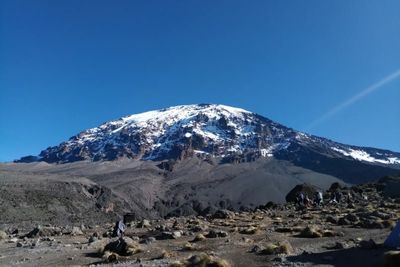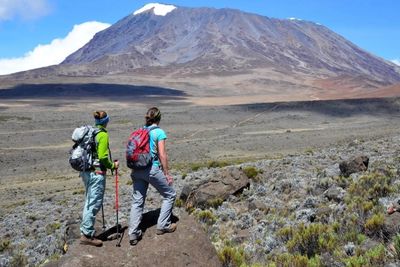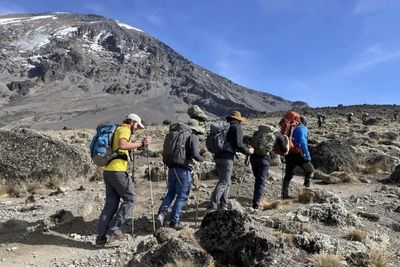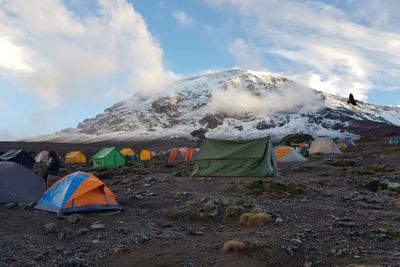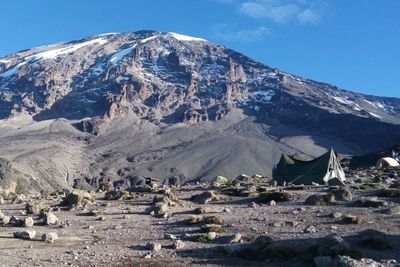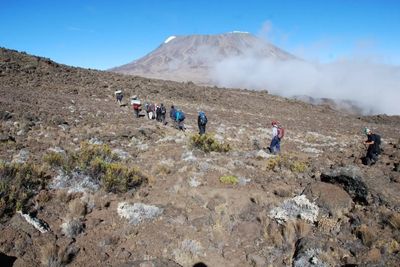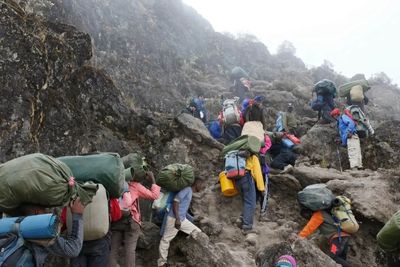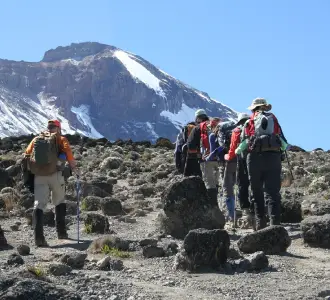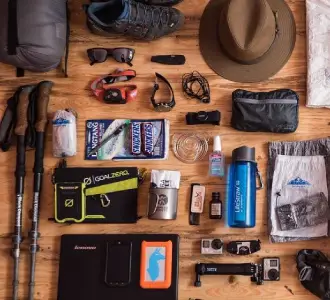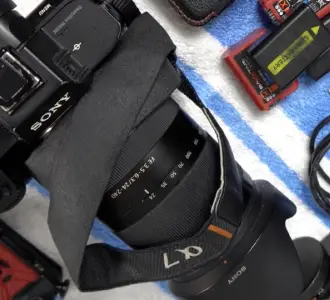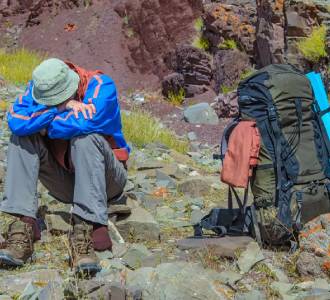When you think about eating on a mountain, you might imagine bland, dehydrated food. However, the Kilimanjaro Food Menu will pleasantly surprise you!
On your climb, our chefs prepare delicious and hearty meals to keep you energized. We have a special dining tent set up with tables and chairs so you can enjoy your meals in comfort. Here’s what to expect from our food menu when you book Kilimanjaro Climbing Packages with us:
- Breakfast – Start with a warm bowl of porridge, followed by eggs and sausages. You’ll also have toast with marmalade or jam and a hot drink like tea, coffee, or hot chocolate. Your guides will adjust portions based on how hungry you are.
- Lunch – Lunch is usually packed and carried in your daypack. It includes a boiled egg, sandwiches, chicken, fresh fruit, and a cold drink. After hiking, we serve afternoon tea with treats like biscuits, peanuts, salted popcorn, and plenty of hot drinks.
- Dinner – Dinner starts with soup, followed by a main dish that could be chicken or meat with vegetable sauce, cabbage, and either rice, pasta, or potatoes. For dessert, you’ll have fresh fruit.
Some more pointers on our Kilimanjaro Food Menu
- – We even have some of your favourite food brands like Heinz, Nescafe, and Nestle to make you feel more at home.
- – We can handle dietary restrictions. Let us know in advance, and we’ll do our best to prepare meals that suit your needs. If your diet is very specific, we recommend bringing some of your energy foods.
- – At high Kilimanjaro Altitudes, your appetite might decrease, but our carbohydrate-rich meals are designed to keep you fuelled. Carbs help you perform better, recover faster, and combat symptoms of acute mountain sickness (AMS).
We would like to inform you that fresh ingredients are used to make our Kilimanjaro Food and dried or “ready” meals are never used. Our Kilimanjaro Porters carefully carry each meal up the mountain and prepare it.
You will be astounded by the calibre and range of the meals we offer, which will keep you strong, content, and healthy during your ascent of Mount Kilimanjaro.









